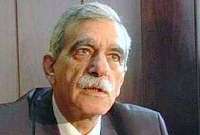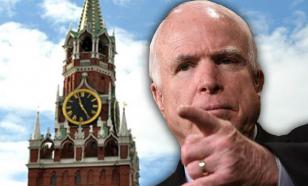Twenty one lawmakers to represent Kurdish minority's rights in Turkey's new Parliament
The twenty one lawmakers backed by a political party accused of being supported by the Kurdish rebel group PKK took their places in Turkey's new Parliament for the first time since 1994.

On Saturday, 21 lawmakers backed by a political party accused of links to the Kurdish rebel group PKK take the oath of office in Turkey's new Parliament, marking the first time the group is represented in the legislature since its ouster in 1994 over alleged ties to the militants.
For many Kurds, the revival of the Democratic Society Party raises hopes for a new era in their struggle for more rights. But many Turks are afraid of a party suspected of being under the influence of an organization labeled terrorist by the United States and the European Union and which has fought to carve out a separate Kurdish state.
The Turkish military has been fighting the PKK for decades in a conflict that has killed as many as 40,000 people, most in the predominantly Kurdish southeast. Kurds constitute about 20 percent of Turkey's more than 70 million people.
The 550-member Parliament will be dominated by the Islamic-oriented ruling party of Prime Minister Recep Tayip Erdogan, who led supporters to a resounding triumph in the July 22 elections. But the Kurds will now have a platform to push for more control over their affairs.
Their presence in Ankara could antagonize other lawmakers who view Kurdish separatism as a threat to national sovereignty.
Kurdish lawmaker Ahmet Turk, a leader of the Democratic Society Party, warned in an interview Thursday with The Associated Press that the state should listen to his group if it wants to avoid alienating Kurds further.
"We want the violence and clashes to stop. We want this solution solved through peaceful and democratic means," Turk said.
Still, Turk's party has declined to brand the PKK, whose supporters have sometimes attacked civilian as well as military targets, a terrorist group. That refusal has angered bigger political parties that say they won't deal with the Democratic Society Party unless it disavows PKK activity.
One new Kurdish lawmaker is Sebahat Tuncel, recently released after a nine-month jail stint for alleged membership in the Kurdish guerrilla movement. Authorities freed her after she was elected by an Istanbul constituency because lawmakers get automatic immunity from prosecution.
An indictment had accused Tuncel, 32, of spending one month at a rebel camp in northern Iraq in 2004, where she allegedly attended a party congress in rebel uniform.
On her release, hundreds of people outside the prison in Gebze, near Istanbul, clapped and showered her with flowers, chanting: "The Kurdish people are proud of you!"
"My election to Parliament from Istanbul, Turkey's doorstep to Europe, shows that not only people in the southeast, but also people in the west of the country, want peace," Tuncel told The AP.
Umit Ozdag, head of a hardline nationalist group called the 21st Century Institute of Turkey, said Tuncel should be blocked from Parliament.
"This person ... has become a part of plots against Turkey and the murder of Turkish soldiers and citizens," Ozdag said.
Kurdish lawmakers say they will call for more freedom to use the Kurdish language in education and broadcasts, and want Turkey to abandon the use of military force as a way of dealing with the conflict.
Turkish leaders, however, say the rebels are the aggressors and have discussed a possible military operation against PKK camps in neighboring Iraq.
The Democratic Society Party wants amnesty for the PKK command, as well as an end to the solitary confinement of Kurdish rebel chief Abdullah Ocalan. Party supporters openly call for Ocalan's release. Some Turkish officials and commentators say the armed group is heavily involved in the party, and even in the selection of political candidates.
The party officially disavows secession, claiming it only wants Turkey to be more democratic and recognize the rights of Kurdish minority.
Nonetheless, after last month's election, the Justice Ministry changed rules allowing lawmakers to visit any prison inmate to prevent Kurdish lawmakers from meeting Ocalan. Some nationalist lawmakers want Ocalan to be hanged.
The party's candidates ran as independents to circumvent a 10-percent vote threshold required for a party to enter Parliament. In 1994, several Kurdish lawmakers were ousted because of alleged ties to Kurdish rebels.
The ruling Justice and Development Party made some inroads with Kurdish voters by promoting its strong economic record. The southeast remains a poor region, where PKK rebels have recruited unemployed youths.
Under pressure from the European Union, Turkey has granted limited rights to education and broadcasts in the Kurdish language. For Kurds, it's not enough.
"The Kurdish question has not been solved through arms," said Nurettin Yilmaz of the Democratic Society Party. "Now everybody should realize that the time has come to solve it. "
Subscribe to Pravda.Ru Telegram channel, Facebook, RSS!




